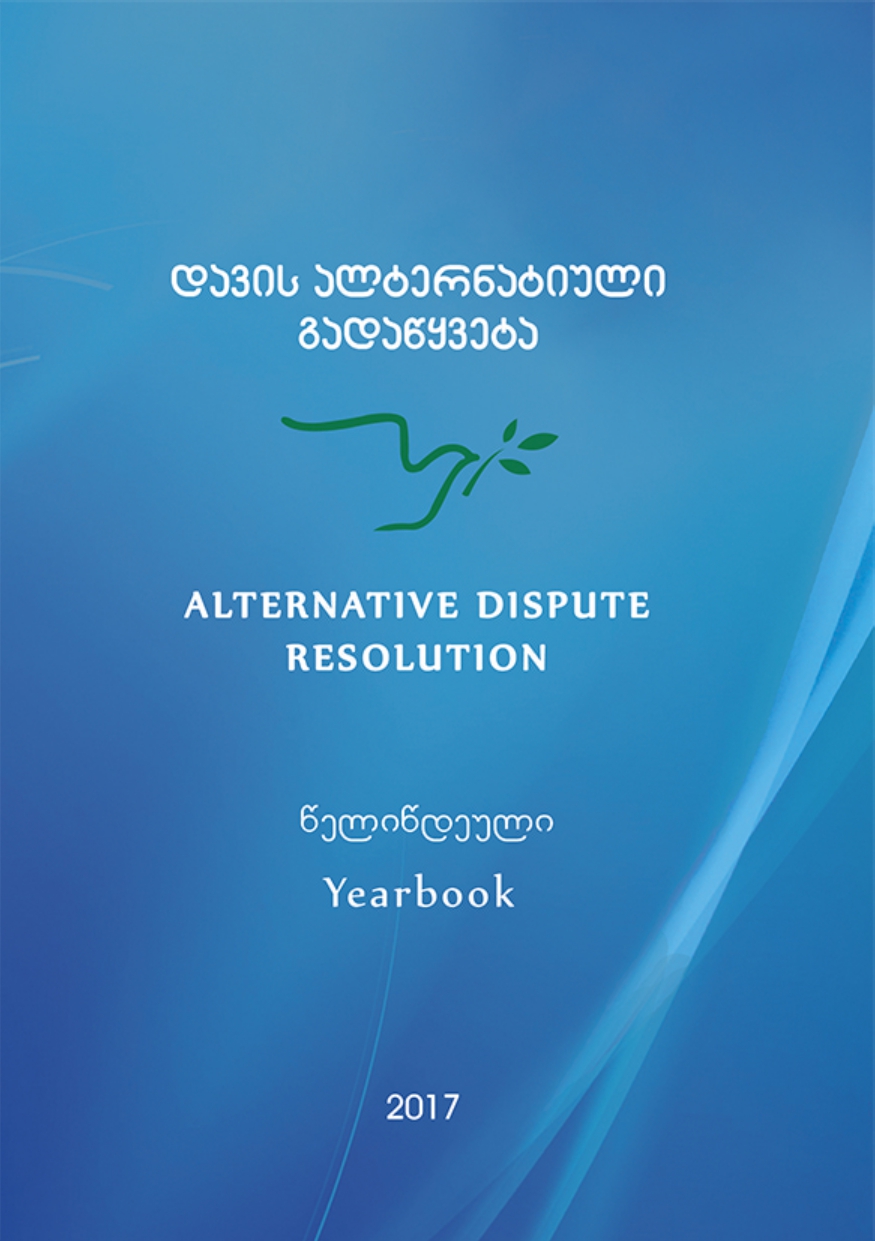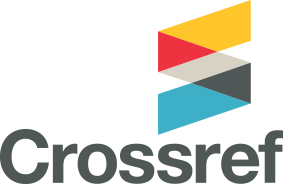Self−determination as an Underlying Value of Mediation Process in Ethical Codes and Legal Scholarship: Tensions between Disputant Autonomy and Substantive Fairness
Keywords:
Principle of Self−determination, Ethical Standard, Concept of Substantive Fairness, Ethical Dilemma, Empowerment Function of Mediation, Ethical Golden Mean, Legitimacy of Settlement, Informed Consent.Abstract
The paper analyzes two fundamental principles of mediation process – right to self-determination of the parties and essential justice. The paper is based on ethical codes of foreign countries and scientific researches in this field.
As there is no ethical code for mediators in Georgia, it is important to rise up awareness of the society regarding mediation as dispute resolution procedure based on ethical principles. Sharing international experience about standards, basic principles of mediation and their interplay is the guarantee for rising up quality of mediation process and supporting court practice.
References
Florida Rules for Certified and Court-Appointed Mediators, 2003.
Model Standards of Conduct for Mediators, 2005.
Model Standards of Practice for Family and Divorce Mediation, 2001.
Uniform Mediation Act, 2003, Section 2.
Alfini J., Press Sh., Stulberg J., Mediation Theory and Practice, 3rd ed., The USA, 2013, 2, 152, 414, 415.
Bush R., Folger J., The promise of Mediation, 2nd ed., The USA, 2005, 22.
Chitashvili N., Fair Settlement as Basis for Ethical Integrity of Mediation, Alternative Journ. Dispute Resolution Yearbook, Tbilisi, 2016, 24, 31.
Florida Rules for Certified and Court-Appointed Mediators, 2003, Committee notes.
Folberg J., Taylor A., Mediation: A Comprehensive Guide to Resolving Conflicts Without Litigation, The USA, 1984.
Gibson K., Mediator Attitudes Toward Outcomes: A Philosophical View, Conflict Resolution Quarterly Vol. 17, I.2nd, 1999.
Goldberg S., Sander F., Roger, N., Cole S., Dispute Resolution: Negotiation, Mediation, and Other Processes, 5th ed., The USA, 2007, 107.
Hyman J., Love L.,If Portia Were a Mediator: An Inquiry into Justice in Mediation, 9 Clinical L. Rev., 2002.
MauteJ.,Mediator Accountability: Responding to Fairness Concerns, J. Disp. Resol, the USA, 1990.
McAdoo B., Welsh N., Look Before You Leap and Keep on Looking: Lessons from the Institutionalization of Court-Connected Mediation, 5 Nev. L.J., 2004-2005.
Moens G., Evans P., Arbitration and Dispute Resolution in the Resources Sector, IusGentium: Comparative Perspectives on Law and Justice, Vol. 43, 2015.
Nolan-Haley J., Informed Consent in Mediation: A Guiding Principle for Truly Educated Decision-making, 74 Notre Dame L. Rev. N.12, 1999, 775, 776, 777, 778.
Nolan-Haley J.,Self−determination in International Mediation: Some Preliminary Reflections, 7 Cardozo J. Conflict Resol, The USA, 2005-2006, 277, 278, 279, 280.
Shapira O., Conceptions and Perceptions of Fairness in Mediation, 54 South Texas L. Rev., Vol.54, The USA, 2012, 282, 296, 297.
Stulberg J., Mediation and Justice: What Standards Govern?, 6 Cardozo J. Conflict Resolution, 2005, 216, 222.
Susskind L., Environmental Mediation and Accountability Problem, Vermont L. Rev.Vol., 6, I, 1.
Tyler R., Procedural Justice and the Rule of Law: Fostering Legitimacy in Alternative Dispute Resolution, Yale Law School Legal Scholarship Repository, Faculty Scholarship Series. Paper 4992. the USA, 2011.
Waldman E., Mediation Ethics: Cases and Commentaries, The USA, 2011, 3, 4, 6, 7, 12.









